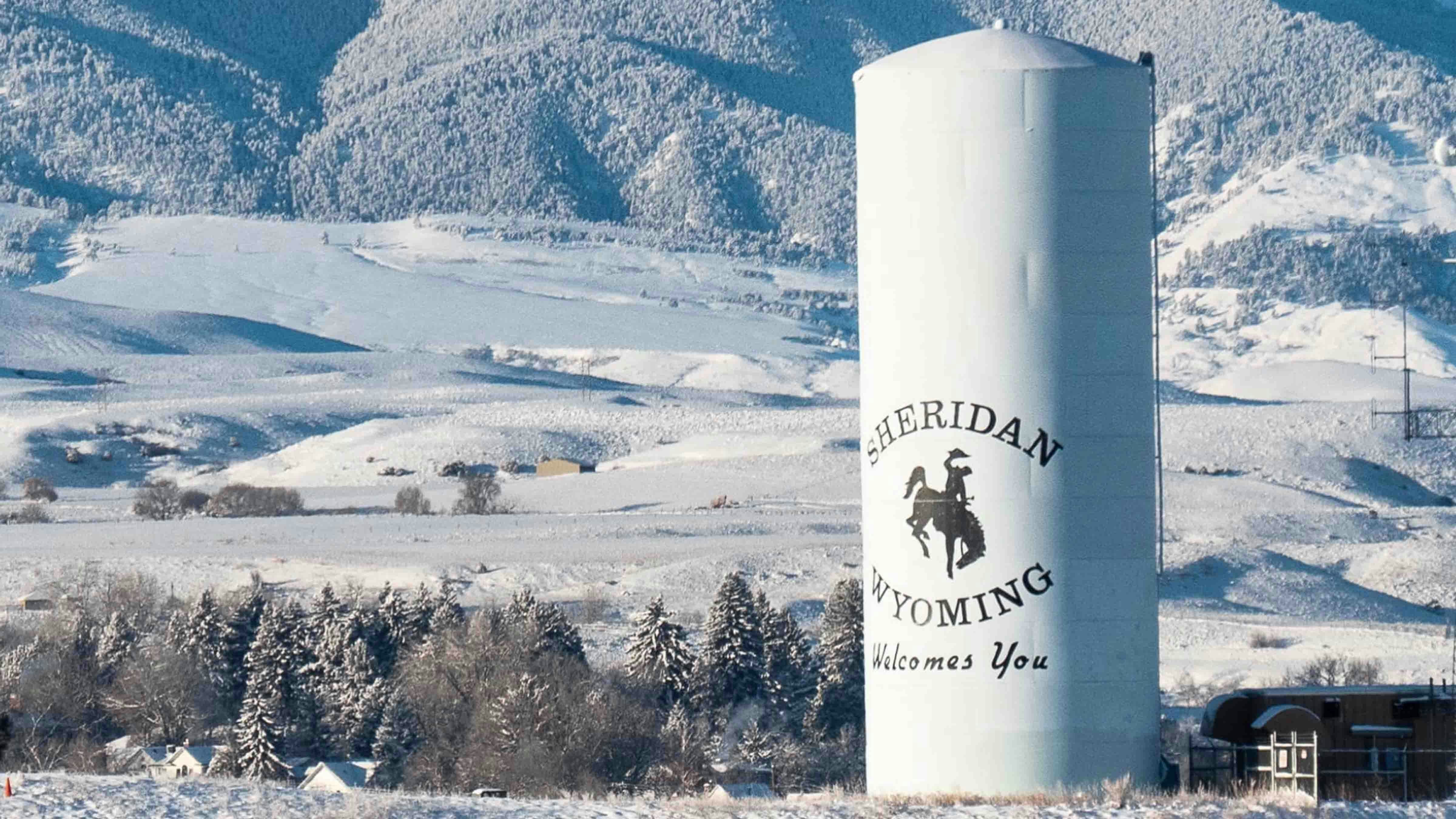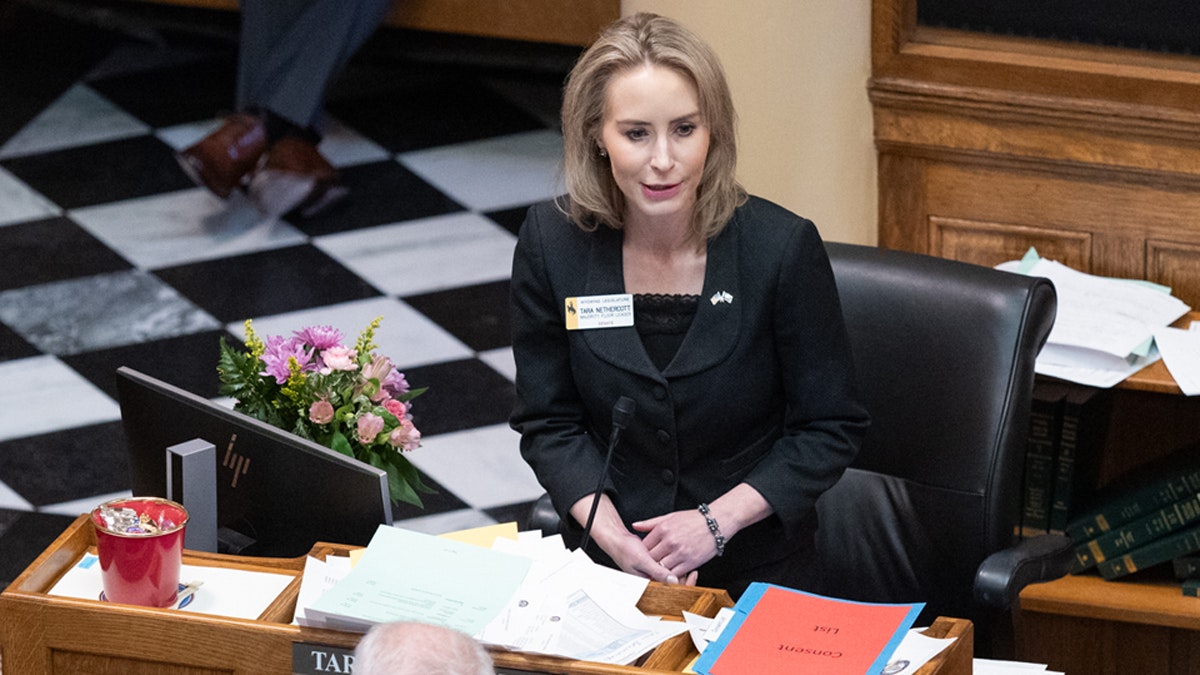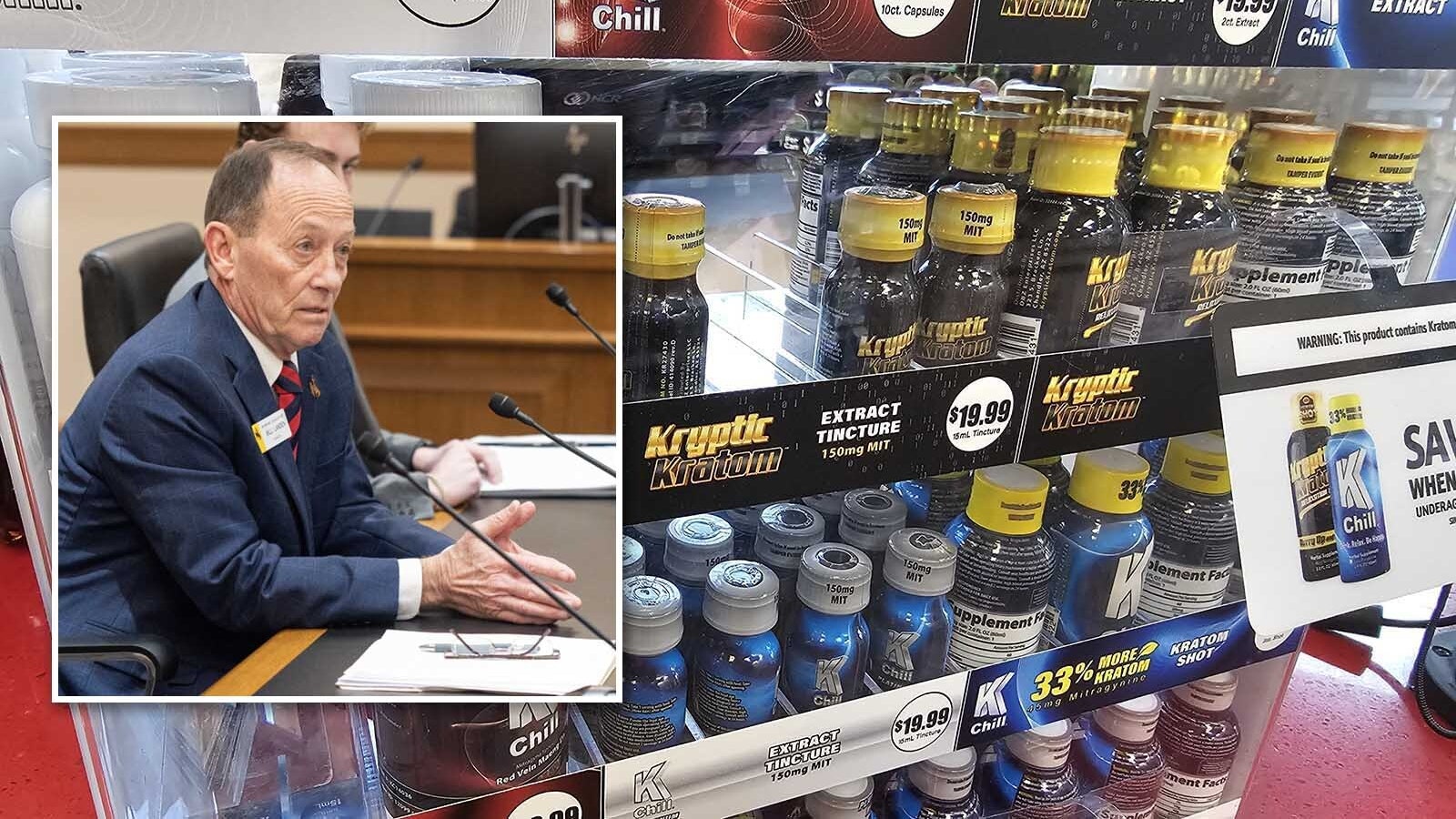CHEYENNE — A years-old effort to push through a controversial Sheridan County land exchange between the state and a private ranch has been delayed a fourth time by the State Board of Land Commissioners to get a new appraisal of the properties.
The board Thursday unanimously decided to delay consideration on the land exchange at the recommendation of the landowner, Ross Matthews, even though it was his opponents who questioned the results of an earlier appraisal.
“I just put that suggestion forward because I try to be a problem solver as opposed to a problem maker,” Matthews said.
The proposed land exchange was already tabled at the commission’s meeting in April, an action that was repeated Thursday for a fourth time. The topic was also twice delayed for discussion at the commission’s meetings in August and October.
Matthews, the former chairman and chief executive officer of Sinclair Oil, is proposing the public land swap in return for land on his Columbus Peak Ranch.
“This does meet the objectives set forth in a land trade,” he said.
The Public’s Watching
A public meeting was held in Sheridan on Nov. 13 about the proposal, which was attended by about 200 people, most opposing the exchange because they say it’s not a fair deal for the state. Opponents also argue it would cut out hunting and recreational opportunities.
The meeting was in addition to the more than 1,200 letters that have been submitted opposing the exchange and unanimous opposition from the Sheridan County commissioners.
Rick Clark, a member of the State Lands Action Team, which has opposed the land transfer, said for the most part his group has not had any negotiations with the landowner since April 2022, with many people expressing to him his group shouldn’t be trying to negotiate at all.
“Wyoming families use this land,” Clark said. “If this exchange is approved, one Wyoming family will utilize this land.”

Too Low?
The proposed swap outside Dayton in Sheridan County would involve trading 628.35 acres of privately owned land and additional cash for 560 acres of state trust land at the base of the Bighorn Mountains about 10 miles away.
Many have also said they believe the state land is being assessed too low. An updated appraisal was recently obtained by Matthews.
Both properties went up in value from an original appraisal that was conducted in June 2020. The state land went up 31% and the private land increased by 28%.
The Columbus Peak Ranch land is now valued at $2.6 million, while the state land is appraised at $3.3 million. The $721,000 difference would be made up with a payment from Matthews, who also made a commitment to offer up to $810,000. The equalization total grew by more than $300,000 from the appraisal of 2020 that was performed by the same company.
Clark said an appraisal his group arranged of the state trust land that is about 2 miles from the Bighorn National Forest came in at more than $5 million, a difference of $1.6 million from the other appraisal. At 5% interest, this would result in $90,200 more revenue per year for the state.
“How will residents feel when they learned that not only are they losing 560 acres of pristine wildlife area, but the state could be leaving as much as $1.64 million on the table, and that amount is growing probably every day?” Clark said.
Secretary of State Chuck Gray and others said that based on the discrepancy between the two appraisals and appreciation of the land’s value, within nine years the terms of the exchange could be viewed as illegal based on state law.
Clark questioned the values determined by TBH Appraisal Co. of Buffalo. He said the company didn’t use comparison sales from properties at the base of the Bighorns and there is a 14% to 19% difference in value of property between the mountain face and someplace just a few miles away. He also said they didn’t use the correct rate of appreciation for property values in this area.
Jason Crowder, deputy director of the Office of State Lands and Investments (OSLI), said the TBH appraisal met all state guidelines. His staff was not able to verify the state lands appraisal.
Gordon’s Conflict
Gov. Mark Gordon revealed during the hearing that he recently sought out Realtor services with the owner of TBH for land that he is buying privately, and because of that is recusing himself from voting to avoid a conflict of interest.
“I just want to make sure since the appraisal has become such a factor in this,” he said.
State Treasurer Curt Meier questioned the recusal. He said one time when in the state Legislature he considered recusing himself on a teacher salary bill because his wife is a teacher. Meier said Senate leadership convinced him to not recuse, explaining to him that around 16-17 other members had a similar conflict.
After a roughly 10-minute private discussion with legal counsel, Gordon continued to recuse himself.
“Does that bear on my judgment on this matter? Most likely not,” Gordon said. “However the appearance of an impropriety is very large and I feel very uncomfortable being put into a position where that hinges as much as it does on an appraisal.”
But he said Matthews’ suggestion to get a new appraisal gave him some relief.

What About Hunting?
State Rep. Cyrus Western, R-Big Horn, who has consistently opposed the exchange, said when looking at the big picture of all the land exchanges that have happened around Wyoming, he believes it has resulted in an overall detrimental outcome for sportsmen.
Gordon said he took “umbrage” with this comment and that whenever the state considers land exchanges, OSLI always brings up how hunting access will be impacted.
The ranch parcel is 2.5 miles east of Dayton and has been described by its supporters like Matthews as an increase of public access to hunting on existing state trust lands nearby.
Mathews indicated at Thursday’s meeting he would be willing to retain the public’s access to a piece of the state land known to be frequented by mule deer.
He said many have referred to the 560 acres as pristine land, a conclusion he said indicates that people have never actually visited the property. Matthews said the land has been overgrazed, which has resulted in a large presence of noxious weeds.
He also believes both parcels are comparable in hunting quality, with neither boasting a frequent presence of elk or either.
Matthews said he doesn’t know why the public is so opposed to the exchange and views it as a fair trade that results in the state owning more land than it now does.
Revenue
OSLI estimates that grazing revenue from the ranch land could provide the state anywhere from $1,244 to $5,062 per year.
The state trust land can only be accessed from adjacent state trust land. This land now can bring in $1,161 to $2,528 grazing revenue per year.
Total revenue as a result of the sale would create $36,000 to $45,000 more for the state per year on top of the equalization cash.
Jim Magagna, vice president of the Wyoming Stock Growers Association, issued support for the transaction, saying it will benefit the University of Wyoming’s School of Agriculture. The money will also go to the state’s school construction fund.
“There’s no room to debate whether this is a benefit to the beneficiaries,” Magagna said.
Leo Wolfson can be reached at leo@cowboystatedaily.com.





